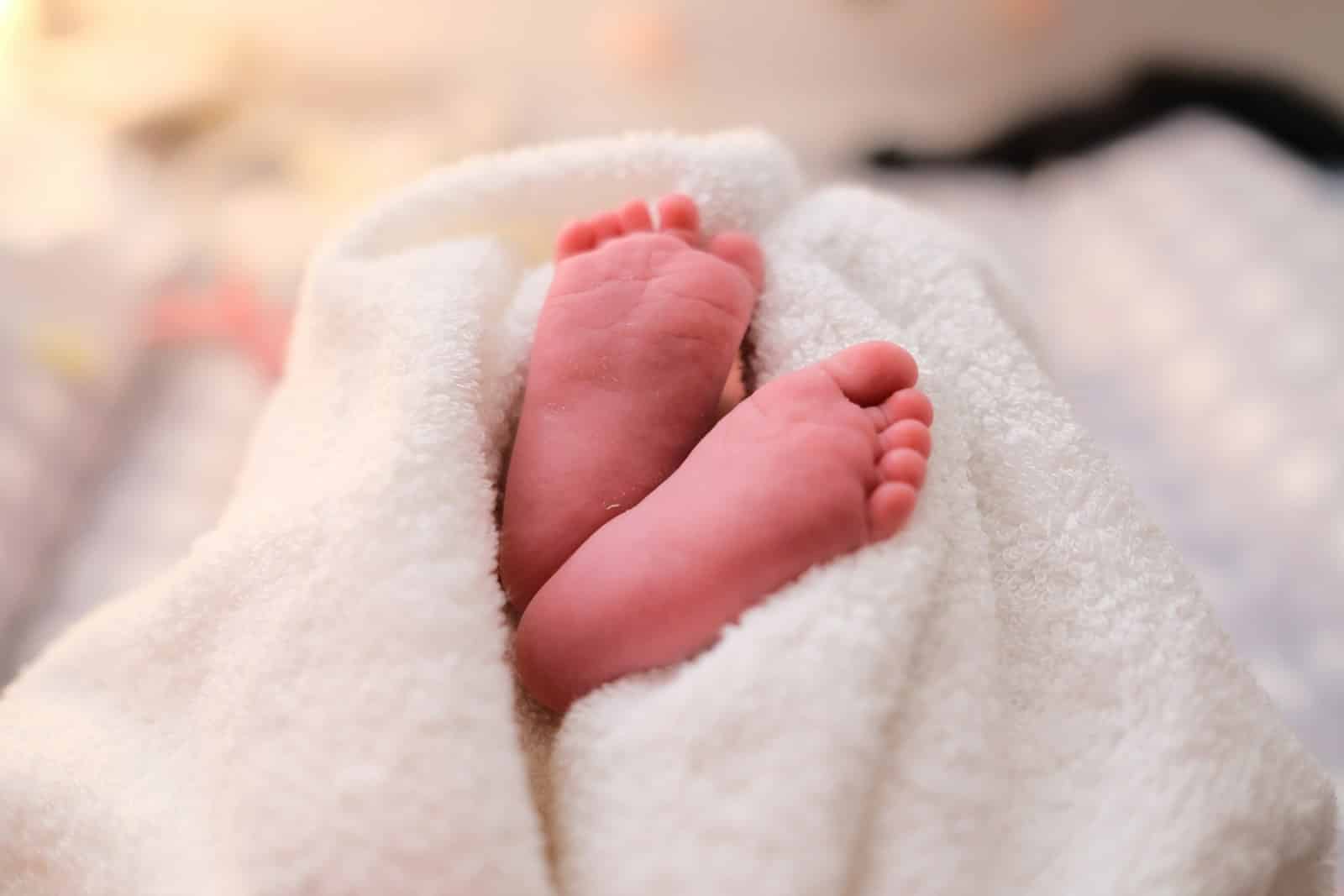In the 1997 film Gattaca, the camera zooms in on a laboratory where embryos are meticulously selected for their genetic perfection. In this creative adaptation of a dystopian future society, genetic engineering and eugenics are the norm, creating a rigid class system based on genetic makeup.
In the movie, the camera pans to a couple eagerly awaiting the news of their “designed” child; their faces are a mix of anticipation and anxiety. Holding a clipboard, the doctor explains the selection process—removing any potential imperfections to create the ideal human. This chilling portrayal of genetic manipulation is what some imagine as they consider the ethical complexities and moral dilemmas faced today with in vitro fertilization (IVF).
Contrary to its depiction in Hollywood, IVF has offered hope to many couples dealing with infertility issues. This advanced reproductive technology has enabled individuals who might have otherwise faced childlessness to have biological children. Yet, despite its benefits, the procedure raises profound ethical questions about the sanctity of life.
When evaluating the technological progress in fertility treatments, it’s crucial to examine if the mere capability to perform procedures using IVF technology justifies their application. Additionally, we must consider whether there are theological principles that ought to guide such decisions.
As a fervent advocate for the abolition of abortion, I deeply believe in the sanctity of life, from conception to natural death. This belief also fuels my opposition to IVF, grounded in solid theological, moral, and ethical convictions. This article provides a definitive ethical analysis of IVF practices, presenting an in-depth exploration of the subject.
Why speak now?
As a father to three remarkable adult children and an advocate for ending abortion for over a decade, the topic of IVF has increasingly come to the forefront of recent conversations. After viewing an informative interview between Dr. Lauren Rubal and my friend Allie Beth Stuckey, I was prompted to check if I had explicitly addressed IVF in my writings. To my astonishment, I discovered that I had not. After more research and engaging discussions with friends with diverse opinions on IVF, I believe it’s the right moment to transparently and publicly express my stance.
As a staunch advocate for the abolition of abortion, I vehemently oppose the practice on theological, moral, and ethical grounds, unwaveringly defending the sanctity of human life from the moment of conception to natural death. I passionately argue against ending a life in the womb, underscoring the inherent value of every human being. However, I have noticed that within our circles, we often do not extend much moral scrutiny to the practices involved in IVF.
“Roughly half of all created embryos do not result in a live birth, highlighting the ethical dilemma of what happens to the unused embryos.”
In my estimation, there are several reasons for this silence. First, there is a widespread lack of understanding of the complex procedures involved in IVF. Many people are unaware of the ethical dilemmas that accompany the creation, selection, and potential destruction of embryos. Second, there is ignorance about the moral issues at stake. The ethical debates surrounding IVF are not as prominently discussed as those concerning abortion, leading to a gap in moral and ethical awareness. Lastly, many abolitionists, myself included, may personally know someone who has benefited from IVF. The joy and gratitude of seeing loved ones experience the miracle of parenthood can induce silence, making it difficult to raise ethical concerns without seeming insensitive.
In this article, I aim to show the utmost respect for my cherished friends who have turned to IVF and now have beautiful families. I want to emphasize from the start that children born through IVF are valuable individuals created in the image and likeness of God. Any conversation that undermines the value of these precious beings is unacceptable. How a child is conceived has no bearing on their intrinsic dignity, value, and worth, as God marvelously creates each one.
However, as defenders of human life, I believe we must broaden our perspective to engage with the ethical intricacies presented by IVF. The moral issues surrounding IVF deserve the same attention and critical examination as those surrounding abortion. We must speak up about this important issue, advocating for ethical alternatives that respect the sanctity of human life.
What is Human Life?
According to Scripture, human life is unique and sacred because it is created in God’s image (Imago Dei). Genesis 1:27 states, “So God created man in His own image, in the image of God, He created him; male and female, He created them.” This foundational truth establishes that every human being reflects God’s image, endowing each person with inherent dignity, value, and worth unlike anything else in God’s order of creation.
In his book, The Works of John Flavel, Puritan theologian John Flavel emphasizes this sacredness by saying, “Man is the masterpiece of creation; as if the great Creator had made nothing else in comparison to him. Man is the top of the workmanship of God.”
Likewise, in his work, A Body of Divinity, Thomas Watson states, “There is no greater argument for a thing’s worth than the price that is paid for it. The soul of man was so dear to God; He sent His Son to redeem it with His blood.” Additionally, Richard Baxter writes, “The dignity and worth of a soul are such as to require the greatest care and diligence for its preservation and welfare.”
The sanctity of human life, a principle deeply enshrined in God’s word, finds robust support within the canon of scripture. Psalm 139:13–16 celebrates human life’s intimate and intentional creation:
“For you formed my inward parts; you knitted me together in my mother’s womb. I praise you, for I am fearfully and wonderfully made. Wonderful are your works; my soul knows it very well. My frame was not hidden from you when I was being made in secret, intricately woven in the depths of the earth. Your eyes saw my unformed substance; in your book were written every one of them, the days that were formed for me, when as yet there was none of them.”
Jeremiah 1:5 underscores God’s knowledge and purpose for each life even before birth: “Before I formed you in the womb, I knew you, and before you were born, I consecrated you; I appointed you a prophet to the nations.”
“The practice of selectively reducing embryos… can reduce human life to a mere set of qualities and traits to be selected or discarded at will.”
The scriptures consistently provide a compelling argument that life begins at conception and is to be protected and valued at every stage. Every embryo, every unborn child, is known and loved by God, created with purpose and worth. This biblical perspective challenges us to uphold the dignity of life in all our practices and decisions, including those related to IVF.
The Dehumanizing Process of IVF
One of the most significant ethical issues with IVF is the commodification of human life. In the IVF process, embryos are created in a lab, often resulting in more embryos than can be implanted. These embryos are then subjected to a grading system, where they are evaluated and selected based on their perceived viability and genetic normalcy. This practice can be reminiscent of the eugenics depicted in “Gattaca,” which can reduce human life to a mere set of qualities and traits to be selected or discarded at will.
Regarding the claim of commodifying human life through IVF, six critical aspects merit consideration: 1) The production of excess embryos; 2) The practice of selectively reducing embryos; 3) The assessment and grading of embryos for viability; 4) The use of commercial terminology (such as fresh, frozen, or leftover) that commodifies embryos; 5) The implementation of genetic testing and selection processes; and 6) The ethical concerns surrounding embryonic research.
According to the Society for Assisted Reproductive Technology (SART), more than one million IVF cycles were conducted in the United States from 1987 to 2015. Each cycle involved retrieving eight or more eggs, ultimately contributing to the birth of about one million babies. This means that even with the best technological advances, most embryos do not lead to live births, highlighting the ethical dilemma of what happens to unused embryos.
In her interview with Allie Beth Stuckey, Dr. Rubal highlights this process’s emotional and physical toll on couples, saying,
“The aggressive nature of the procedures, from hormone injections to egg retrieval, places immense strain on women. Moreover, the emotional burden of deciding the fate of unused embryos can be overwhelming. Many couples are left with frozen embryos, facing the heart-wrenching decision of whether to discard them, donate them for research, or keep them frozen indefinitely.”
Relatable w/ Allie Beth Stuckey: Former IVF Doctor Blows the Whistle on Shocking Practices | Guest: Dr. Lauren Rubal | Ep 1018
The physical implications for couples aside, the core issue is whether we genuinely hold that life starts at conception, regardless of the method. If this is our belief, then our treatment of human life from the moment of conception is paramount. Further, it is within God’s purview to both give and take life. As we navigate the sacred act of creating life, we must tread with profound awe and caution, mindful of God’s sovereignty. Even if we act out of altruism, this respect should keep us from hastily participating in artificial procreation.
The Ethical Dilemma of Embryo Selection
Another critical moral and ethical concern is the selection and potential discarding of embryos based on genetic testing. While pre-implantation genetic testing aims to reduce the risk of genetic disorders, it also opens the door to selective breeding. This practice raises the question of whether we are, in essence, playing God by determining which lives are worthy of being brought into the world.
First, the use of genetic testing to select embryos based on desired traits, such as intelligence or physical appearance, raises significant ethical concerns related to eugenics. The introduction of polygenic embryo screening, which can assess the probability of complex traits and diseases, further intensifies these debates, potentially leading to the controversial practice of creating designer babies.
“The introduction of polygenic embryo screening… intensifies these debates, potentially leading to the controversial practice of creating designer babies.”
Next, the problem of embryo loss in IVF is significant. This refers to embryos that either fail to survive implantation or are not chosen for the procedure. In 2018, according to the Centers for Disease Control and Prevention (CDC), 73,831 IVF cycles were performed in the U.S., resulting in 23,041 live births. This indicates that almost 69% of IVF cycles do not lead to a live birth, highlighting the significant embryonic loss involved. These embryos are frequently discarded, donated for research, or indefinitely frozen. This situation poses deep ethical questions regarding the value of life and our obligations to these individuals.
Dr. Rubal points out that parents are often not fully informed about the fate of embryos deemed unhealthy. This lack of transparency undermines the ethical principle of informed consent, leaving parents to grapple with the moral implications of their choices without adequate guidance.
The Physical and Financial Toll of IVF
Beyond the moral and ethical issues, IVF poses significant physical and financial risks. The invasive procedures involved can lead to complications such as ovarian hyperstimulation syndrome (OHSS) and increased risks of pre-term births and birth defects. A study found that women who undergo IVF have a 41% higher risk of preterm birth and a 56% higher risk of delivering a low-birth-weight baby compared to those who conceive naturally.
“Similar to the Tower of Babel, IVF stands as a significant scientific breakthrough while simultaneously presenting profound ethical challenges.”
Additionally, the high costs associated with multiple IVF cycles can place a substantial financial burden on couples, leading to stress and anxiety. According to the American Society for Reproductive Medicine (ASRM), the average cost of an IVF cycle in the U.S. is between $12,000 and $15,000, and many couples require more than one cycle to achieve a successful pregnancy.
Key arguments supporting IVF often highlight reproductive rights and the advantages of genetic screening. However, the focus should be on alternatives such as adoption or natural fertility methods, which align more closely with God’s design and the natural order.
The Evolution of IVF for Non-Traditional Families
Key arguments in support of IVF often highlight reproductive rights and the advantages of genetic screening. Another growing advocacy group for IVF is the LGBTQIA+ community. In 2008, only 27 percent of treatment cycles for patients in female same-sex relationships were for IVF. By 2018, that number had increased to 45 percent. In addition, single patient’s use of IVF has increased from 41 percent in 2008 to 57 percent in 2018, making IVF the primary treatment type for this group. The technology is lauded for its positive impact on non-traditional families. However, there is little focus on the experiences of children raised by same-sex and transgender couples as well as single mothers.
The rejection of IVF should not be based solely on the presence of non-traditional families, nor should it serve as a pretext to forsake IVF treatments. Instead, rejecting IVF should stem from a comprehensive theological critique, considering its broader ethical and societal impacts.
The Role of the Church and Community
The Church plays a crucial role in providing couples dealing with infertility with invaluable resources. This includes offering Biblical guidance, emotional support, and practical assistance grounded in God’s design and the natural order. It is crucial to foster a culture that values all forms of parenthood, including adoption. Furthermore, the Church can educate its members on the ethical implications of assisted reproductive technologies and promote a culture of respect for human life.
Support groups allow individuals to connect with others going through similar experiences, providing a sense of belonging and understanding. These groups can also serve as education platforms, helping individuals become more aware of alternative options and make informed decisions about their fertility journey.
Facing the emotional and physical challenges of infertility, I urge couples to explore alternatives to IVF that are consistent with their belief that a child is a human being from the moment of conception.
Final Thoughts
Similar to the Tower of Babel (Genesis 11:1–9), which symbolizes humanity’s ambition to surpass the boundaries of the divine plan, IVF stands as a significant scientific breakthrough while simultaneously presenting profound ethical challenges. Christians must carefully discern and seek Godly wisdom on such intricate issues. While understanding the yearning for children, it’s vital to explore alternatives to IVF that are more in harmony with our beliefs and values, recognizing the significance of following God’s design and intentions.
Issues such as the commodification of life, the ethical quandaries surrounding embryo selection, and the significant physical and financial burdens placed on individuals underscore the potential for the dehumanizing nature of these procedures.
When examining IVF, it’s essential to recognize that single mothers, same-sex couples, and the transgender community are its primary beneficiaries. This raises a fundamental question: Do these scenarios provide the most conducive environments for raising children? Additionally, the ethical considerations surrounding the destruction of embryos or their use in research must be addressed.
As we continue to navigate the complexities of modern fertility treatments, we must remain vigilant about safeguarding the dignity and sanctity of human life. Life should not come at the cost of our moral and ethical principles. We must seek alternatives that honor the inherent value of every human being, conceived not in a lab but with respect and reverence for the miracle of life. It’s important that we no longer remain silent on this critical issue.





